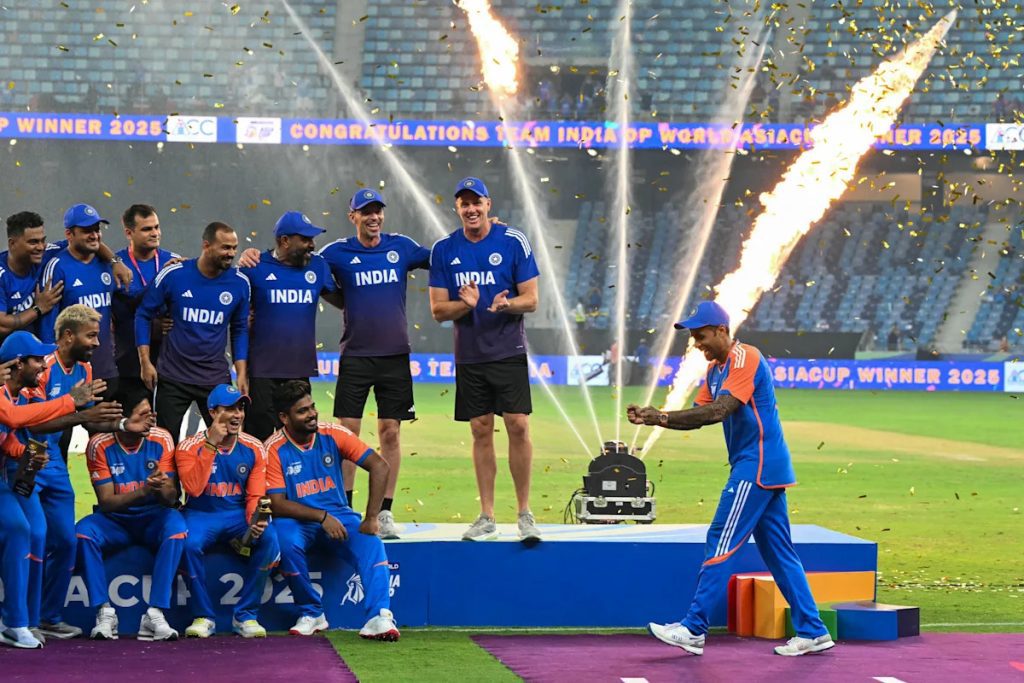India and Pakistan’s Tense Sporting Relations
Islamabad, Pakistan – During a parliamentary address on July 29, Indian Prime Minister Narendra Modi referred to the military operation against Pakistan, known as “Operation Sindoor,” as a “victory,” indicating it was still ongoing.
Modi asserted, “Operation Sindoor remains active and resolute,” emphasizing the military context in a speech that spanned 102 minutes. Following India’s win against Pakistan in the Asia Cup cricket final on September 28, he once again invoked the idea of conflict, stating, “Operation Sindoor on the games field. Outcome is the same – India wins!” on X.
Analysts interpreted Modi’s comments as indicative of cricket’s transformation into a battleground for India and Pakistan. The Asia Cup, intended to celebrate cricket in Asia, reflected underlying political tensions, highlighted by India’s refusal to accept the trophy from Mohsin Naqvi, the Asian Cricket Council (ACC) chair and Pakistani interior minister.
Following the match, the Indian Board of Control for Cricket in India (BCCI) expressed its decision not to accept the prize, citing Naqvi’s political role. The trophy was subsequently withheld, forcing India to celebrate with a replica trophy instead.
Naqvi responded critically to Modi’s remarks, asserting that equating cricket to war only displays desperation. The tournament had already been tainted by controversy, with calls in India for a boycott of matches against Pakistan due to escalating tensions, highlighting the historical backdrop of the two nations’ sporting engagement.
This marked a shift from cricket being a diplomatic tool to a means of conflict. Relationships between players have often remained friendly despite political tensions, but as newer generations take the field, previous camaraderie seems to be waning amid a more hostile atmosphere.
Looking ahead, the women’s teams of the two nations are set to face off on October 5 at the Women’s World Cup in Sri Lanka. However, ongoing political disputes significantly limit opportunities for future encounters. The current landscape appears bleak, with both analysts and citizens yearning for a shift towards cooperation and understanding.



